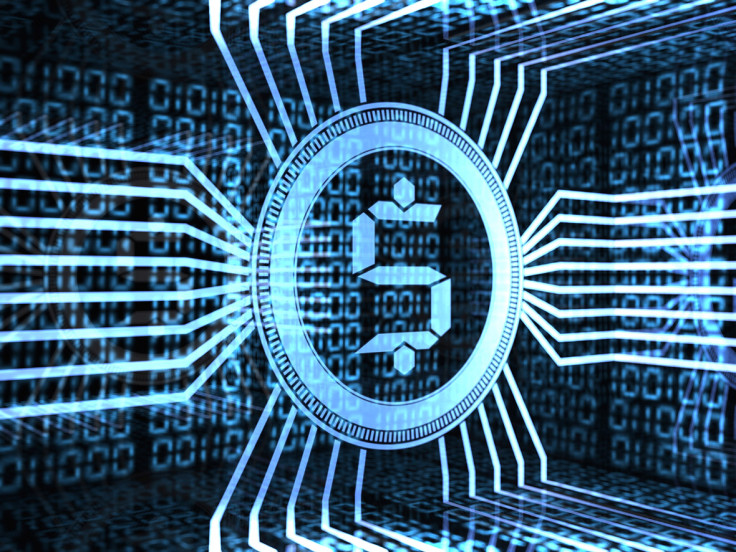Blockchain: ALAX allows app and game developers to reach millions of 'unbanked' consumers
Matej Michalko, Co-founder of ALAX, is using DECENT's blockchain and Dragonfly's games distribution platform.

Pessimists predict that in the not so distant future, access to early stage funding will dry up, pushing all new emerging tech and talent into the welcoming arms of giant corporations, with their hearts set on acquisitions.
However, luckily for startups, a new technology has emerged over the last few years which, by nature, is impossible to monopolize. Anyone who doubts the ability of blockchain to put industry giants on their back foot need only look at the financial industry. Blockchain is designed to be decentralized, and cannot be controlled by any single entity. And while most blockchain applications have until now primarily focused on cyber-currencies, the blockchain is making lots of different processes much more secure and transparent, and in turn competitive.
Over the last few decades, we have seen more cooperation between global corporates and startups via corporate accelerators and innovation labs. However, the same can't be said for cooperation between startups themselves, who still tend to keep data and ideas close to their chest in fear of losing a competitive advantage. However, if smaller companies want to stay competitive against tech giants, they will need to start working more closely together. And to do this, they will need to start communicating better and sharing more data and research.
So we decided that we should take the step forward and join our blockchain know-how with another startup's game distribution platform to accomplish the best possible results. Thanks to DECENT's blockchain and Dragonfly's games distribution platform we can achieve such a unique level of cooperation. Blockchain is a software which allows decentralized computing and a level of P2P collaboration which is much more transparent and trustworthy than previous systems which could be controlled by a single entity -- be it a bank or a technology provider.
There are about 2 billion unbanked adults in the world, that's a figure reported by the World Bank Global Finance Index of 2014, two billion people with no access to traditional means of banking such as bank accounts, credit cards or debit cards. However, what they do have relatively easy access to is cash and 3G/LTE smartphones. Well, we asked ourselves, how do we provide people with no access to banks with services provided by app stores? After mulling over how to best approach the problem, we came up with ALAX!
The token-based ALAX platform will give developers access to tens of millions of game and app consumers who do not use credit or debit cards, allowing them to deliver their creations to a wider audience. To do that we designed the platform in such a way that it would allow easy access to anyone.
Let's get a bit technical to see how precisely this will work. Using the ALAX platform, customers will be able to purchase tokens in cash through the existing Dragonfly retailer network. Tokens are then used in-app to purchase games and apps direct from the developer. Not only does this speed up the transaction, and reduce the price of content, it also opens gaming and app purchases to customers without access to traditional methods of payment, some of which we've already mentioned. This mostly summarizes the basics of how ALAX works.
But that is not the only thing we set out to do differently. The platform itself will also represent a fairer deal for developers: according to DECENT's estimates, the traditional purchase methods result in game developers currently receiving a maximum of 70% profit from an app, with payments often taking 3-6 months to be processed. Well that's quite a cut they're taking to their earnings, not to mention that they have to wait up to half a year to receive their payments. In contrast, token payments will be made directly to the developer and can then be exchanged for a FIAT currency (USD, EUR, THB, PH, etc) at any time.
Even nowadays, many small companies have problems raising seed funding. Many are turning to alternative methods, such as crowdfunding on sites like Kickstarter or IndieGoGo, but these platforms are viewed by many as unreliable, due to scams and false projects which will put off many potential investors.
However, over the last year initial coin offerings or token generation events (ICOs or TGEs), in which startups raise funds via cryptocurrencies, have exploded around the world. As of September 2017, 140 ICOs had raised more than $2 billion in token sales this year, showing consumers and startups alike are open to and interested in this type of investment.
While companies may struggle to raise enough for an A or B round, TGE offer a great alternative to raising seed funds, which allows startups to continue on their own path, rather than being forced into the arms of greedy giants who want to suck out their tech and talent.
The ALAX Token Generation Event (TGE) is set to commence on April 17th, and will last 6 days. 1 billion ALX tokens will be issued, and these tokens can be used to acquire ALA tokens (tied to FIAT and used for in-platform purchases) on the ALX/ALA exchange at a 20% discount, with full details available in a published one pager.
Mobile games revenue in Southeast Asia is predicted to reach $2.4 billion by 2021 and, with other intended partnerships also in the pipeline, ALAX is set to provide app and game developers with access to millions of new consumers in emerging markets.





















